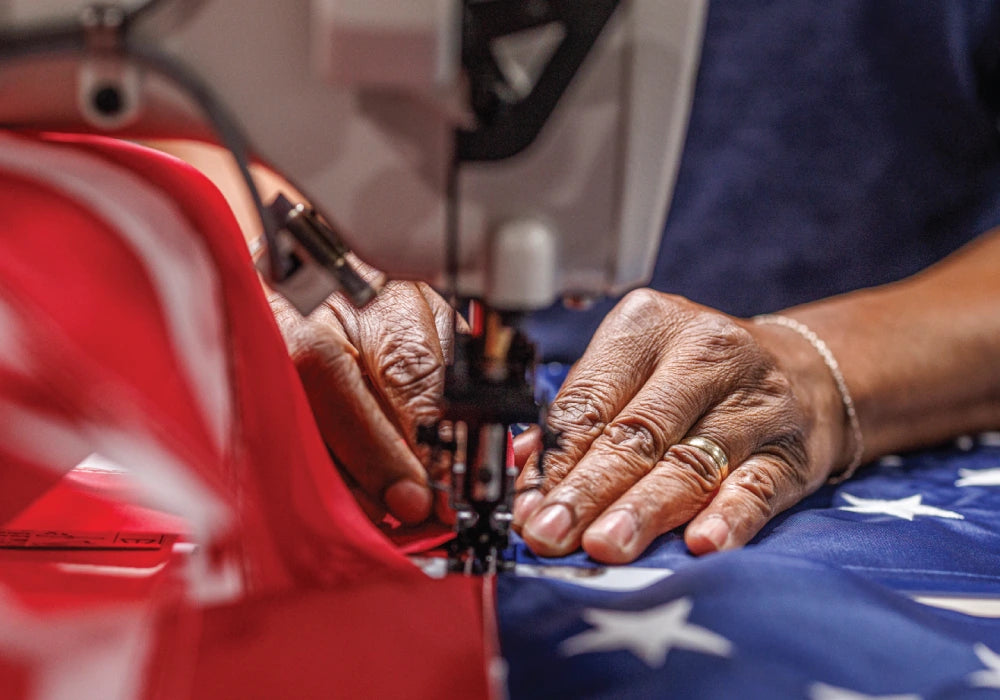April 28

1941
The U.S. Supreme Court unanimously ruled that under the 1887 Interstate Commerce Act, African Americans were entitled to equal passenger accommodations on the nation’s railroads. Rep. Arthur Mitchell of Illinois, the first black member of Congress to be elected as a Democrat, co-argued his own suit before the court. Mitchell brought forth his suit in response to being ordered by an Illinois Central conductor to vacate his first-class air-conditioned Pullman sleeper compartment while traveling from Chicago to Hot Springs, Ark., shortly after the train left Memphis, Tenn., and to move to a second-class segregated car for the remainder of his trip, which continued on the Rock Island line.

1967
Boxing champion Muhammad Ali refused to be inducted into the U.S. Army and was immediately stripped of his heavyweight title. Ali, a Muslim, cited religious reasons for his decision to forgo military service. He was convicted of draft evasion, sentenced to five years in prison, fined $10,000 and banned from boxing for three years. He stayed out of prison as his case was appealed and returned to the ring on October 26, 1970, knocking out Jerry Quarry. On March 8, 1971, Ali fought Joe Frazier in the “Fight of the Century” and lost after 15 rounds, the first loss of his professional boxing career. On June 28 of that same year, the U.S. Supreme Court overturned his conviction for evading the draft.

1970
President Richard Nixon gave his formal authorization to commit U.S. combat troops, in cooperation with South Vietnamese units, against communist troop sanctuaries in Cambodia. Secretary of State William Rogers and Secretary of Defense Melvin Laird had continually argued for a downsizing of the U.S. effort in Vietnam, but Nixon left them and other advisors out of the decision, which essentially amounted to an invasion of Cambodia. The incursion angered many in Congress, who felt that Nixon was illegally widening the war; this resulted in a series of congressional resolutions and legislative initiatives that would severely limit the executive power of the president.
April 29


1789
The House Committee on Elections, a panel created only 16 days earlier, reported its first contested election case, thereby establishing a precedent for procedures that have largely remained in place through the present day. First, the committee would gather evidence and render a judgment. Then the House would decide whether more evidence was needed and, if not, vote on the committee’s report. South Carolina’s David Ramsay disputed William Loughton Smith’s eligibility to represent Charleston in the House under the Constitution’s seven-year citizenship requirement. In the November election, Smith had soundly won the election, but Ramsey claimed Smith's not living in the country during it's founding rendered him a non-citizen. The committee upheld the Smith's win.

1945
The U.S. Seventh Army’s 45th Infantry Division liberated Dachau, the first concentration camp established by Germany’s Nazi regime. A major Dachau sub-camp was liberated the same day by the 42nd Rainbow Division. As the Americans entered Dachau, they encountered unimaginable evil and horrible conditions. Established five weeks after Adolf Hitler took power as German chancellor in 1933, Dachau was located about 10 miles northwest of Munich and functioned predominantly as a forced labor camp. In the course of Dachau’s history, at least 160,000 prisoners passed through the main camp, and 90,000 through the sub-camps. Incomplete records indicate that at least 32,000 of the inmates perished at Dachau, but countless more were shipped to camps elsewhere.

2004
The World War II Memorial opened in Washington, D.C. to thousands of visitors, providing overdue recognition for the 16 million U.S. men and women who served in the war. The memorial is located on 7.4 acres on the former site of the Rainbow Pool at the National Mall between the Washington Monument and the Lincoln Memorial. The Capitol dome is seen to the east, and Arlington Cemetery is just across the Potomac River to the west. Only a fraction of the 16 million Americans who served in the war would ever see it. Four million World War II veterans were living at the time, with more than 1,100 passing every day, according to government records.
April 30

1789
George Washington was sworn in as the first American president and delivers the first inaugural speech at Federal Hall in New York City. Elements of the ceremony set tradition; presidential inaugurations have deviated little in the two centuries since Washington’s inauguration. Observers noted that Washington appeared as if he would have preferred facing cannon and musket fire to taking the political helm of the country. After delivering his address, Washington walked up Broadway with a group of legislators and local political leaders to pray at St. Paul’s Chapel. Later, he made the humble and astute observation that his presidency, and the nation itself, was an experiment.

1939
The New York World’s Fair opened in New York City. The opening ceremony, which featured speeches by President Franklin D. Roosevelt and New York Governor Herbert Lehman, ushered in the first day of television broadcasting in New York. Spanning 1,200 acres at Flushing Meadow Park in Queens, the fairground was marked by two imposing structures—the “Perisphere” and the “Trylon”—and exhibited such new technology as FM radio, robotics, fluorescent lighting and a crude fax machine. Sixty-three nations participated in the fair, which enjoyed large crowds before the outbreak of World War II interrupted many of its scheduled events.

1993
Top women’s tennis player Monica Seles was stabbed by Gunter Parche, a deranged fan of German tennis star Steffi Graf, during a match in Hamburg. The assailant apparently hoped that by injuring Seles his idol Graf would be able to regain her No. 1 ranking. Seles, who became a US citizen and continued to play for the US in 1994, had won 8 Grand Slams at the time of the attack, but was left with emotional scars that kept her from playing for two more years. She would go onto win the Australian Open in 1996, her final Grand Slam, while her attacker received a suspended sentence and would not be seriously punished for the stabbing. The attack led to greater distance between fans and players along with increased security during tennis events.
May 1

1926
Ford Motor Company became one of the first companies in America to adopt a five-day, 40-hour workweek for workers in its automotive factories. Ford believed that overworking employees was bad for their productivity, and giving them more down time without compromising their financial well-being would help increase worker loyalty and commitment to Ford Motor Company. Ford’s groundwork, along with a great deal of effort from the new labor unions, encouraged manufacturers all over the country and world to adopt the Monday-to-Friday standard workweek.

1931
President Herbert Hoover officially dedicated New York City’s Empire State Building, pressing a button from the White House that turns on the building’s lights. Hoover’s gesture, of course, was symbolic; while the president remained in Washington, D.C., someone else flicked the switches in New York. The idea for the Empire State Building is said to have been born of a competition between Walter Chrysler of the Chrysler Corporation and John Jakob Raskob of General Motors. Chrysler had already begun work on the famous Chrysler Building, the gleaming 1,046-foot skyscraper in midtown Manhattan. At the time of its completion, the Empire State Building, at 102 stories and 1,250 feet high (1,454 feet to the top of the lightning rod), was the world’s tallest skyscraper.

1941
Orson Welles’ Citizen Kane made its debut at RKO Palace Theater. The landmark film began generating such controversy that Radio City Music Hall eventually refused to show it. The 24-year-old Welles had already made a name for himself as Hollywood’s "enfant terrible" and based his new film on on the life of publishing baron William Randolph Hearst, who presided over the country’s leading newspaper empire. Hearst himself was incensed and tried to suppress the film. Although reviews were favorable, and it was nominated for nine Academy Awards, it was a box office failure. However, years after its initial release, it consistently ranks at the top of film critics’ lists, most notably grabbing the No. 1 spot on the American Film Institute’s poll of America’s 100 Greatest Films.
May 2

1949
Arthur Miller won the Pulitzer Prize for Death of a Salesman. Debuting on Broadway the same year, it is a two-act tragedy set in 1940s New York told through a montage of memories, dreams, and arguments of the protagonist Willy Loman, a traveling salesman who is disappointed with his life, and appears to be slipping into senility. The play contains a variety of themes, such as the American Dream, the anatomy of truth, and infidelity. It explores the psychological chaos of the protagonist, and the capitalist society's impact on his life. It is considered by some critics to be one of the greatest plays of the 20th century.

1972
After nearly five decades as director of the Federal Bureau of Investigation (FBI), J. Edgar Hoover died, leaving the powerful government agency without the administrator who had been largely responsible for its existence and shape. Hoover joined the Department of Justice in 1917 and was appointed acting director of the Bureau of Investigation in 1924. During the 1920s, with Congress’ approval, Director Hoover drastically restructured and expanded the Bureau of Investigation. He built the corruption-ridden agency into an efficient crime-fighting machine, establishing a centralized fingerprint file, a crime laboratory, and a training school for agents.

2011
Osama bin Laden, the mastermind behind the September 11, 2001, terrorist attacks in the United States, was killed by U.S. forces during a raid on his compound hideout in Pakistan. The notorious, 54-year-old leader of Al Qaeda, the terrorist network of Islamic extremists, had been the target of a nearly decade-long international manhunt. The raid began when 23 U.S. Navy SEALs in two Black Hawk helicopters descended on the compound. Just after 11:30 p.m. EST, President Barack Obama, who monitored the raid in real time via footage shot by a drone flying high above Abbottabad, made a televised address from the White House, announcing bin Laden’s death. “Justice has been done,” the president said.
May 3

1936
Batting ahead of Lou Gehrig in the lineup, Joe DiMaggio made his major league debut with The Yankees. DiMaggio was a three-time Most Valuable Player Award winner and an All-Star in each of his 13 seasons. During his tenure with the Yankees, the club won ten American League pennants and nine World Series championships. His nine career World Series rings is second only to fellow Yankee Yogi Berra, who won thirteen. Considered one of the greatest baseball players of all time, he had a 56-game hitting streak, a record that still stands. He retired in 1951 and was inducted into the Major League Baseball Hall of Fame in 1955.

1951
The Senate Armed Services and Foreign Relations committees, meeting jointly in closed session, began hearings into President Harry S. Truman’s dismissal of Gen. Douglas MacArthur. As the featured witness at the opening session, MacArthur spoke for more than six hours. He assailed Truman’s Cold War foreign policy, arguing that if the president’s “inhibitions” about extending the war into Communist China had been removed, the conflict could have been “wound up” without a “very great additional complement of ground troops.” The hearings ended with no heard conclusions. MacArthur tried to win the Republican presidential nomination in 1952. But he lost out to another famed military leader with a more moderate political outlook: Dwight D. Eisenhower.

1952
A ski-modified U.S. Air Force C-47 piloted by Lieutenant Colonel Joseph O. Fletcher of Oklahoma and Lieutenant Colonel William P. Benedict of California became the first aircraft to land on the North Pole. A moment later, Fletcher climbed out of the plane and walked to the exact geographic North Pole. While American explorer Robert Peary is credited with reaching the North Pole first, recent studies indicate he was about 30 miles short of the exact North Pole. Lieutenant Colonel Fletcher was the first person to undisputedly stand on the North Pole.
May 4

1776
Rhode Island, the colony founded by the most radical religious dissenters from the Puritans of Massachusetts Bay Colony, became the first North American colony to renounce its allegiance to King George III. Rhode Island served as a mercantile center of the transatlantic slave trade in the 18th century. Desire to protect this lucrative triangle trade led Rhode Islanders to bristle at British attempts to tighten their control over their colonies’ commerce. Ironically, Rhode Island would be the last state to ratify the new American Constitution more than 14 years later on May 29, 1790. Rhode Island was one of the few states that could survive fiscally independent from the proposed federal union and did not want to lose income to the new federal government.

1970
In Kent, Ohio, 28 National Guardsmen fired their weapons at a group of anti-war demonstrators on the Kent State University campus, killing four students, wounding eight, and permanently paralyzing another. The tragedy was a watershed moment for a nation divided by the conflict in Vietnam, and further galvanized the anti-war movement. The shootings led to protests on college campuses across the country. Photographs of the massacre became enduring images of the anti-war movement. In 1974, at the end of a criminal investigation, a federal court dropped all charges levied against eight Ohio National Guardsmen for their role in the Kent State students’ deaths.

1977
U.S. television viewers watched the first of a four-part series of exclusive interviews of former President Richard Nixon by David Frost, a British journalist. The initial broadcast focused on the Watergate scandal, which had led to Nixon’s resignation in 1974. In the interview, Nixon admitted that he had “let the American people down” by masterminding the process that precipitated the botched 1972 burglary of the Democratic National Committee’s offices. But he denied that he had sought to obstruct justice, a key impeachment charge lodged against him by the House Judiciary Committee. Nixon also told Frost that the day he resigned was “the first time I cried since [former President Dwight] Eisenhower died.”






